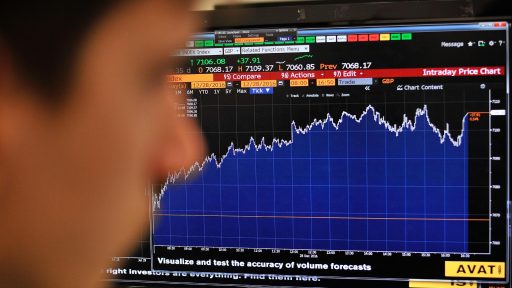- Home
- >
- Daily Accents
- >
- What are the risks for the financial markets?

What are the risks for the financial markets?

Unprecedented is an overused word in financial markets — but this time it's justified.
Since the global financial crash, central banks have engaged in a global economic support operation like no other, with the world's three key organization's gorging on $15 trillion dollars of bond buying to save financial markets from themselves and prevent a recession that might have been … well, unprecedented!
As of this week's Federal Reserve meeting, we are now witnessing an unprecedented unwinding of those purchases. Fed Chair Janet Yellen says the U.S. central bank will liquidate $10 billion of the bonds on its $4.5 trillion balance sheet every month.
The Fed has been preparing the markets for this move for months, in the hope that a gradual shift from quantitative easing (QE) to quantitative tightening (QT) will barely cause a ripple in the monetary pond. But not everyone is convinced that the consequences of this move are obvious or predictable.
There are other reasons for investors to be wary. Since the crash and the beginning of the QE programs the world has changed. Global debt has mushroomed to over $200 trillion and the Bank for International Settlements (BIS) recently suggested at least $13 trillion of derivatives exposure may be missing from official figures. How will holders of this debt stock behave?
Within this story there are also some other areas of particular concern like China, where S&P Global Ratings has just joined Moody's in cutting the country's sovereign credit rating. Beijing has been trying hard lately to deepen its capital markets and entice overseas bond buyers, but foreigners still only represent about 2 percent of the market for central and local government debt. Any default risk therefore largely remains concentrated in Chinese hands, and concentrating credit risk is rarely a good idea.
There are a plethora of current market fears: Most assets appear fully priced and therefore vulnerable to a correction or worse; President Donald Trump's long promised tax and infrastructure bills have yet to appear; and he has a provocative approach to international relations that could go badly wrong. On top of all this the financial system itself has changed, and not necessarily only for the better.
All of this makes current portfolio construction challenging.
Source: Bloomberg Pro Terminal
Junior Trader Stefan Panteleev
 Varchev Traders
Varchev Traders Read more:
If you think, we can improve that section,
please comment. Your oppinion is imortant for us.











